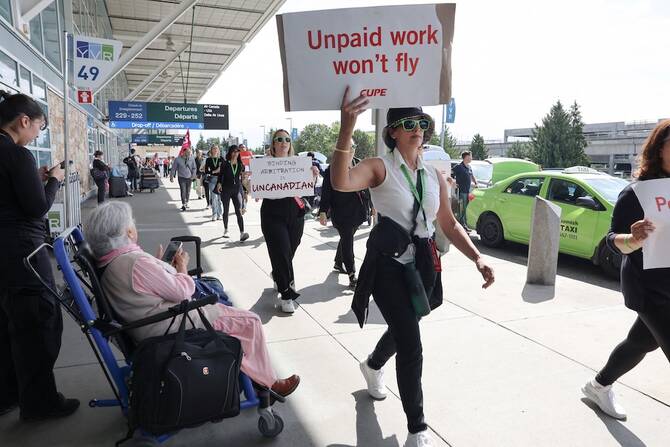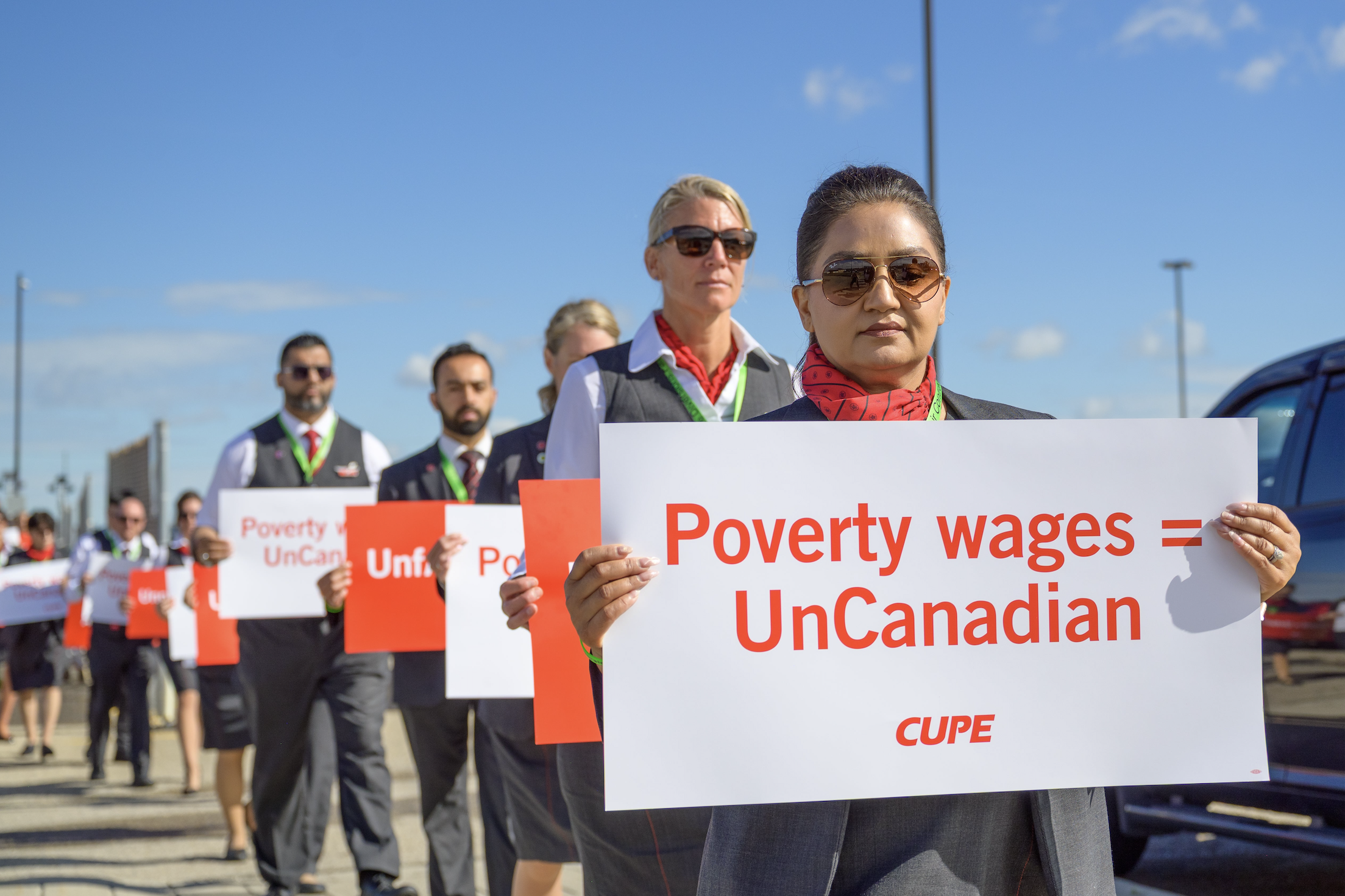DESIBUZZCanada
Events Listings
Dummy Post

International Day Of Yoga To Be Virtually Celebrated Saturday At 4pm

CANCELLED: Coronavirus Fears Kills Surrey’s Vaisakhi Day Parade

ADVERTISE WITH US: DESIBUZZCanada Is The Most Read South Asian Publication Online

SURREY LIBRARIES: Get Technology Help At Surrey Libraries

WALLY OPPAL: Surrey Police Transition Update On Feb. 26

GONE ARE THE DAYS - Feature Documentary Trailer

Technology Help At Surrey Libraries

Birding Walks

Plea Poetry/short Story : Youth Contest

International Folk Dancing Drop-in Sessions
CONGRATULATIONS: Air Canada Flight Attendants Stand Up For Their Rights And Win Big
- August 22, 2025

By Harinder Mahil
It is great to see Air Canada flight attendants reach a collective agreement with Air Canada four days after starting their strike. They not only won big for themselves but for hundreds of thousands of workers in the federal jurisdiction.
According to the Canadian Union of Public Employees (CUPE), the agreement was reached in seven hours after the Union declared it will defy the back to work order issued by the government. If an agreement could be reached in seven hours, why could this not have been done in eight months of bargaining. This is because Air Canada was expecting the federal government to force flight attendants back to work without coming to the bargaining table in good faith.
The federal Jobs Minister Patty Hajdu invoked Section 107 of the Canada Labour Code merely 12 hours after the strike began and ordered the flight attendants back to work. This provision of the Labour Code allows the minister to order binding arbitration and end work stoppages.

Section 107 had seldom been used up until 2024, when the Liberal government invoked it in the ports and railways strikes, and then again during the Canada Post strike.
The fact that the parties reached an agreement within hours of the union defying the back to work order shows it was possible to do so before as well. It is obvious that the government was too hasty in ordering striking workers back to work. The government was not only hasty but also showed a disregard for the constitutional rights of the workers’ right to strike. What kind of constitutional rights is it if it can be disregarded the way the government did?
If a major employer such as Air Canada can count on the government to step in to prevent a strike, no employer will bargain in good faith and will simply wait for the government to step in and order striking workers back to work. This makes a mockery of the workers’ right to strike.
The flight attendants won their strike not only because of their union’s support but also of Canada's labour movement. Canada’s unions, under the leadership of the Canadian Labour Congress, met soon after the strike began and called on the federal government to immediately withdraw the order under s.107 to end the legal strike by CUPE and amend the Canada Labour Code to remove s. 107.

In addition, Canada’s unions were ready to support CUPE if the government took legal action against the union and striking workers.
One of the major issues in the strike was the fact that flight attendants at Air Canada were not paid for the time they spend helping passengers while on the ground. This is about the basic principle that workers should be paid for all hours they work for an employer. For too long, these workers have performed unpaid work, a practice that undermines the dignity of work in Canada.
I hope that the federal government has learnt a lesson out of this dispute and that in the future it would not use section 107 of the Canada Labour Code to trample workers’ right to strike. It should recognize that in an employer-employee relationship, the employer holds a lot of power including compensation, benefits and job security. The employees have one right – to withdraw their services. That right should not be taken away by any government as it was done in this case.

Harinder Mahil is a human rights activist and is secretary of Dr. Hari Sharma Foundation.











